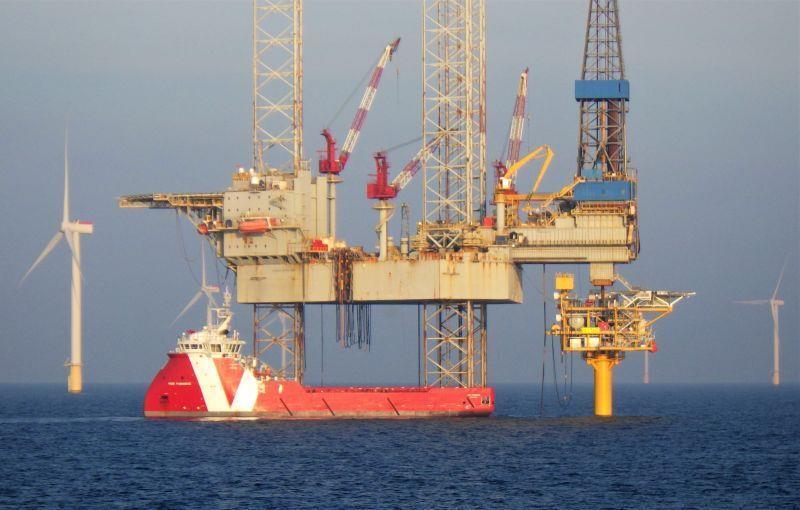
IOG has suspended operations at its A2 well on the Southwark field after remediation work failed to boost production rates, prompting another fall in its stock price.
In an operational update on Monday, IOG (LON:IOG) said it had completed remediation work and flow testing on its long-delayed A2 well, but that “rates do not currently justify hooking up the well for production.”
It is yet another blow to the company’s plans for the Southwark field, from which the company had hoped to produce first gas by mid-January. However, issues with rig stability and now low flow rates and produced water volumes have hampered progress.
Shares in the company fell again on the news, at one point hitting a historic low of 4.8p.
Southwark forms part of the first phase of IOG’s wider Saturn Banks project, which includes the Blythe and Elgood fields.
IOG said it had completed three of the six stimulated zones and perforation of two other zones within the A2 well. The well was then flow tested both on a sustained basis to establish stable rates and on a cycled basis.
While the work successfully reduced water production from 1,500 barrels per day (bpd) to an average rate of 380 bpd, it said stabilised gas rates have been limited to 2.5 million cubic feet per day at a flowing wellhead pressure of 1,186 psi.
Well test data is still being reviewed with the company’s technical advisors, but the rates indicate the well is “clearly uneconomic”, noted Panmure Gordon director and analyst Ashley Kelty.
A2 will now be suspended while the firm evaluates the feasibility of cycled production and other “alternative longer-term remediation strategies”, IOG said.
In the meantime, it will make a decision with venture partner CalEnergy on whether to directly resume work at Southwark’s other well – A1 – well as planned or to move the Shelf Perseverance – formerly Noble Hans Deul – rig to prioritise work at the Blythe field.
Work on the H2 well at Blythe would be subject to further regulatory approvals but would offer more time to incorporate learnings from A2 – something chief operating officer Dougie Scott said would be “pivotal” to drawing up further plans for completion at A1.
“Moving forward, a key focus area will be assessing the viability of hydraulic stimulation in reservoirs with low column height above free water,” he added.
Back to work at Blythe?
Production at Blythe has also been constrained by liquids handling capacity at the Bacton terminal and the need for offsite storage, processing and disposal of saline aqueous liquids being produced from the H1 well.
Work at the field’s H2 well is intended to increase production rates, increase reserves recovery and limit water production, which would alleviate these onshore water handling requirements.
However, the company’s schedule is busy. Under its existing rig contract, including priced extension options, IOG also plans to tackle two appraisal wells at Goddard and Kelham North/Central later this year.
It said it would review its capital expenditure programme in light of the setbacks, and will provide further updates “in due course”.
Chief executive Rupert Newall said the group was “clearly very disappointed” with the outcome of work at A2, which is “a very significant departure from our plans and expectations.”
“We are already working hard to incorporate the data and learnings from A2 into the A1 well plan and will assess the implications for other similar assets in our portfolio.
“As we demobilise well test equipment, we are evaluating next steps with our joint venture partner. Recent engineering and procurement work gives us the option to accelerate Blythe H2, which is an important well for IOG. If successful, it would increase near term production and cashflow as well as significantly reducing water production and associated costs.”
In an analyst note, Mr Kelty said the result at A2 “materially downgrades the potential of the Saturn Banks Hub as Southwark was to be a key part of it.”
“Overall upside looks limited now and the Blythe well needs to work.
“Investors must surely now be wondering whether this is simply more bad luck, a very low-quality asset or whether it’s time for a change of management.”
